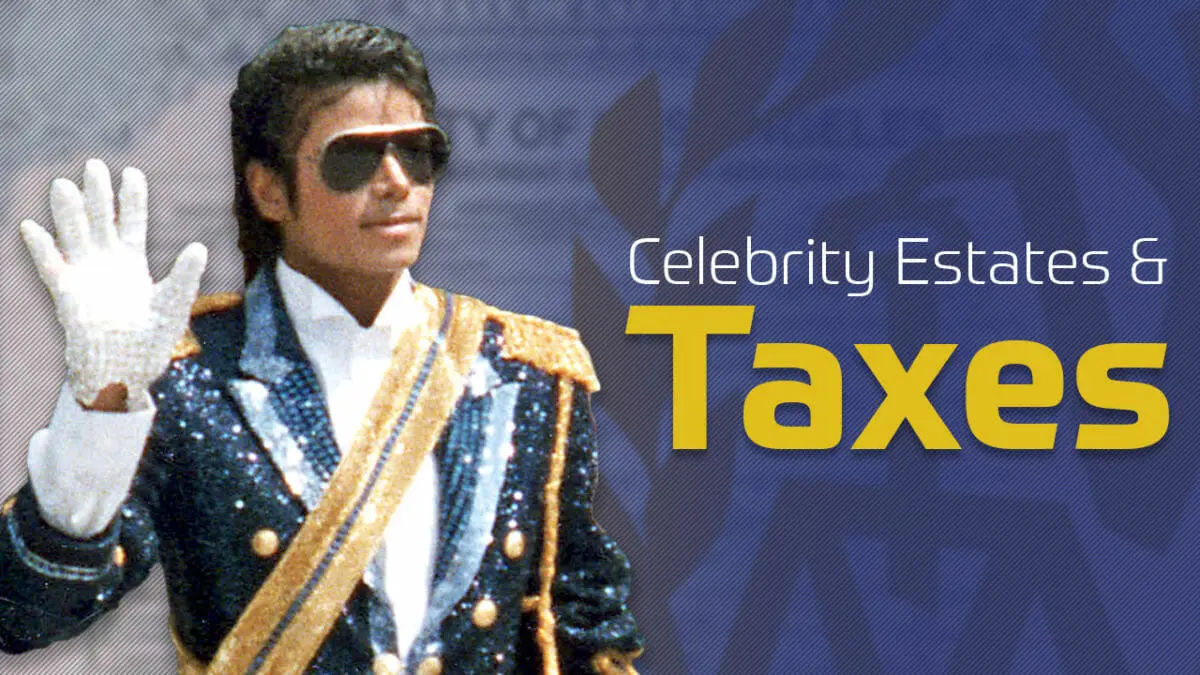
Michael Jackson & the Taxman | Celebrity Estates
I’m Mike Hackard of Hackard Law. We litigate estate, trust, and elder financial disputes in California. We occasionally deal with celebrities, their children, or grandchildren.
Celebrity estates have issues that don’t commonly arise in other estates. Particularly, tax issues.
Celebrities aren’t strangers to the taxman. The Beatles’ 1966 “Taxman” is the Beatles’ first political statement made in their music. It’s understandable. As high earners, they were in the United Kingdom’s 95% supertax bracket.
Michael Jackson’s estate has its own war with the taxman. The dispute revolves around the value of Michael Jackson’s likeness and image at the time of his death.
Likeness and image is often the most lucrative asset a star owns. The sale of their name, image, signature, voice, photograph, or likeness in endorsements and merchandising can be huge. Estate tax is assessed against the value of assets when the taxpayer dies. A celebrity’s image and likeness, for estate tax purposes, is valued at the date of their death.
Michael Jackson died in 2009. Michael Jackson, in the final six months of his life, received only $24 in image and likeness revenue. At the time that he died he was battling to rehabilitate his image against allegations of child molestation.
His estate valued his image and likeness at $2,000 – later modified to about $3 million. The IRS had a different view. An enormously different view. His image and likeness, they said, was worth $434 million. The matter, after nearly 12 years, generated a tax court opinion.
The Tax Court valued his likeness and image at $4.1 million. A huge win for the estate. Of course, the estate owned other huge dollar value assets in music publishing and copyrights. The estate and the IRS are, in the words of an estate representative, now on a path forward to finally resolve the case in a fair and just manner.
Image and likeness values have become a hot item for IRS audits. California treats image and likeness as an asset transferable at the celebrity’s death.
I know from some experience that image and likeness is an often-overlooked estate asset. California’s statute protects a person’s “name, voice, signature, photograph, or likeness.” Since it is classifiable as a form of personal property, it can be transferred. It can be licensed. In forms that the contracting parties agree upon.
It’s also divisible. This can be important where the celebrity has children from different marriages. It is easy to see where disputes arise.
Given the IRS appetite for more taxes, it’s also easy to see that the disputes are predictable.
Hackard Law litigates that whole range of issues that stem from estate, trust, and elder financial abuse disputes. This range includes the right of privacy. A right that can extend and be protected in a variety of ways.
If you’d like to speak with us about your case, call us at Hackard Law: 916-313-3030. We’ll be happy to hear from you.
Hackard Law: Attorneys Making A Difference.

 (916) 775-8542
(916) 775-8542